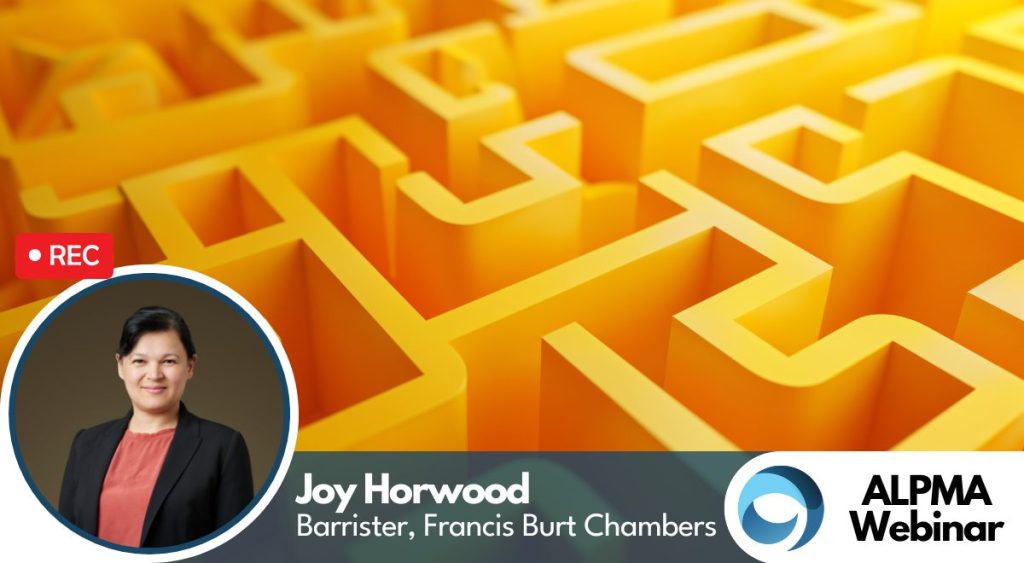If you’re not a solicitor, you don’t need to know about the Australian Solicitors Conduct Rules (ASCR), right? Well, actually, no. The ASCR (which have now been adopted in New South Wales, Queensland, Victoria, South Australia, and the Australian Capital Territory) affect the way in which solicitors work in a number of ways which are also critical to the management of legal practices.
There are 43 Rules that make up the ASCR — here are the 5 that are most important to legal practice managers.

Rule 10 – Conflicts concerning former clients
Ceasing to act for a client does not mean that a firm can cease to be concerned about that client’s interests. If the firm (or solicitors who work there) hold confidential information concerning a former client, and the disclosure of information would be detrimental to the former client, then the firm can be restrained from acting for a new client if the former client’s confidential information is “material to the matter” of that new client.
This issue needs to be considered not just when the new client comes in the door, but when considering which prospective clients to target for business development. There is not much use in bringing new work in the door if conflicts will prevent the firm from performing that work.
However, the Rule specifically provides that the firm will not be prevented from acting for the new client if “an effective information barrier has been established”. The construction of effective information barriers requires coordination of technical, educative, and compliance functions within a firm to ensure that the solicitors who are subject to the obligation, comply with the requirements of the Rule.
Rule 11 – Conflict of duties concerning current clients
Conflicts can also arise in relation to current clients with different interests, and the management of these conflicts will often be as much an issue of client relationships as it is one of law. It is (unfortunately) not uncommon for allegations of conflict to be raised by opposing lawyers for tactical reasons, and Justice Pembroke of the Supreme Court of New South Wales has noted that:
“Often in commercial litigation, third parties intermeddle for their own strategic reasons, asserting the existence of a conflict when, in truth, it has been dealt with, and there is no actual conflict, and in any event, it is none of the third party’s business.”
If the firm has in place effective systems for identifying conflicts when the client relationship is first established, effective information barriers, and effective processes for identifying when informed consent needs to be sought, the firm will be in a better position to avoid work being lost through “meddling” allegations of conflict.
Rule 35 – Contracting with third parties
This Rule provides that if a solicitor instructs a third party on behalf of the client, and the solicitor is not intending to accept personal liability for payment of the third party’s fees, the solicitor must advise the third party in advance.
Depending upon the nature of the practice, there may be a number of different third parties who a solicitor engages (such as barristers or expert witnesses).
This Rule will need to be considered in relation to a firm’s standard business conditions, as well as ensuring that the firm’s accounts function is aware of what expenses the firm is liable for in the event that the client either does not pay, or is slow in paying, the firm’s accounts. A failure to pay third party accounts for which a solicitor is liable can often result in a professional conduct complaint.
Rule 36 – Advertising
Solicitors (and principals of law practices) must ensure that advertising, marketing and promotion is not misleading or deceptive, or offensive, or prohibited by law. In particular, the Rule specifically prohibits false or misleading impressions about specialist expertise, including by prohibiting the use of the expression “accredited specialist” (or any similar wording) unless the solicitor is accredited by the relevant Law Society.
You might think that it would go without saying that any business should avoid misleading or deceptive advertising. However, one difficulty in practice (which can lead to disciplinary complaints) involves the making of laudatory statements about the practice (and the experience of its practitioners) which go beyond what can be objectively justified.
The lesson is that all advertising material needs to be tested by asking the question, “if we were asked to justify this, would we have a defensible answer?”
Rule 42 – Anti-discrimination and harassment
Rule 42 provides that unlawful discrimination and harassment (including sexual harassment) carries professional conduct issues for solicitors (in addition to the workplace law issues which arise for all employees.)
In 2014, a Victorian solicitor’s practising certificate was suspended for eight months (although reduced to two months on appeal) following a finding of sexual harassment.
All workplaces need effective discrimination and harassment policies and training, and law firms are not excluded. It is not safe to assume that because solicitors might have a good understanding of other areas of the law, they necessarily understand how to avoid discrimination and harassment in practice.
Conclusion
Cooperation and co-ordination are the key aspects of running a practice whose lawyers are compliant with the ACSR — both between legal and non-legal staff, and between different non-legal staff (as is required to establish effective information barriers).
It is lawyers whose professional conduct may be the subject of complaints if these matters are not effectively dealt with. But it is practice management professionals who will often be responsible for the implementation of the processes, so it is important that everyone in the office understands the way in which these obligations operate.



